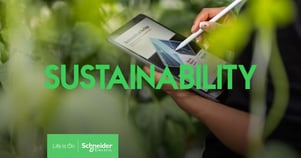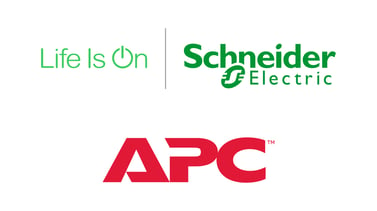With sustainability standards rising and new classes of modular single-phase UPSs available at market, businesses have the unique opportunity to meet net-zero goals. To assist with the critical process of decision-making, our trusted manufacturing partner APC has provided three main criteria for buyers to consider when upgrading their UPS system: Energy efficiency, build materials, and circularity.
Customers may be tempted to make a decision based alone on unit price; however, it's important for those to remember that spending less upfront often costs more in the long haul. Ultimately, total cost of ownership (TCO) should be at the top of every customer's mind who is selecting a newer, more sustainable UPS system.
Energy Efficiency
The first thing APC advises UPS buyers to consider is energy efficiency. Do this by keeping an eye out for the Energy Star 2.0 label. This means the unit is efficient, and has a reduced carbon footprint. Energy Star even has a useful search tool to help you find the most energy-efficient UPS based on unique project requirements.

Build Materials
The materials used and energy consumed in UPS construction play a crucial role in its sustainability. Look for units that use lightweight metals and recycled materials, such as lightweight aluminum that is 75% recycled. This reduces the overall plastic usage and carbon impact.
Circularity
Circularity refers to what happens with a product at the end of it's life. APC's modular UPSs, for example, have features that were specifically designed with circularity in mind.
Its features allow for the reusability of components and the ability to upgrade without purchasing a new unit. Power modules can be removed and repaired instead of discarding the entire unit, contributing to sustainability. Additionally, connectivity and remote monitoring capabilities help address issues early on, preventing more costly failures.
Choosing Your Next UPS System with APC
There are many considerations when evaluating the long-term value of UPS purchases for your business. Along with energy efficiency, build materials, and circularity, customers should consider battery replacement, labor cost, wiring, and warranty.
Schneider Electric focuses on developing sustainable UPS solutions like the APC Smart-UPS Modular Ultra series. They are designed with circularity in mind and achieve Energy Star 2.0 certification, resulting in the lowest embodied carbon footprint in the market.
Contact a local Accu-Tech Representative to discover how APC solutions can benefit your unique application.





.png?width=58&height=58&name=X_logo_2023_(white).png)
